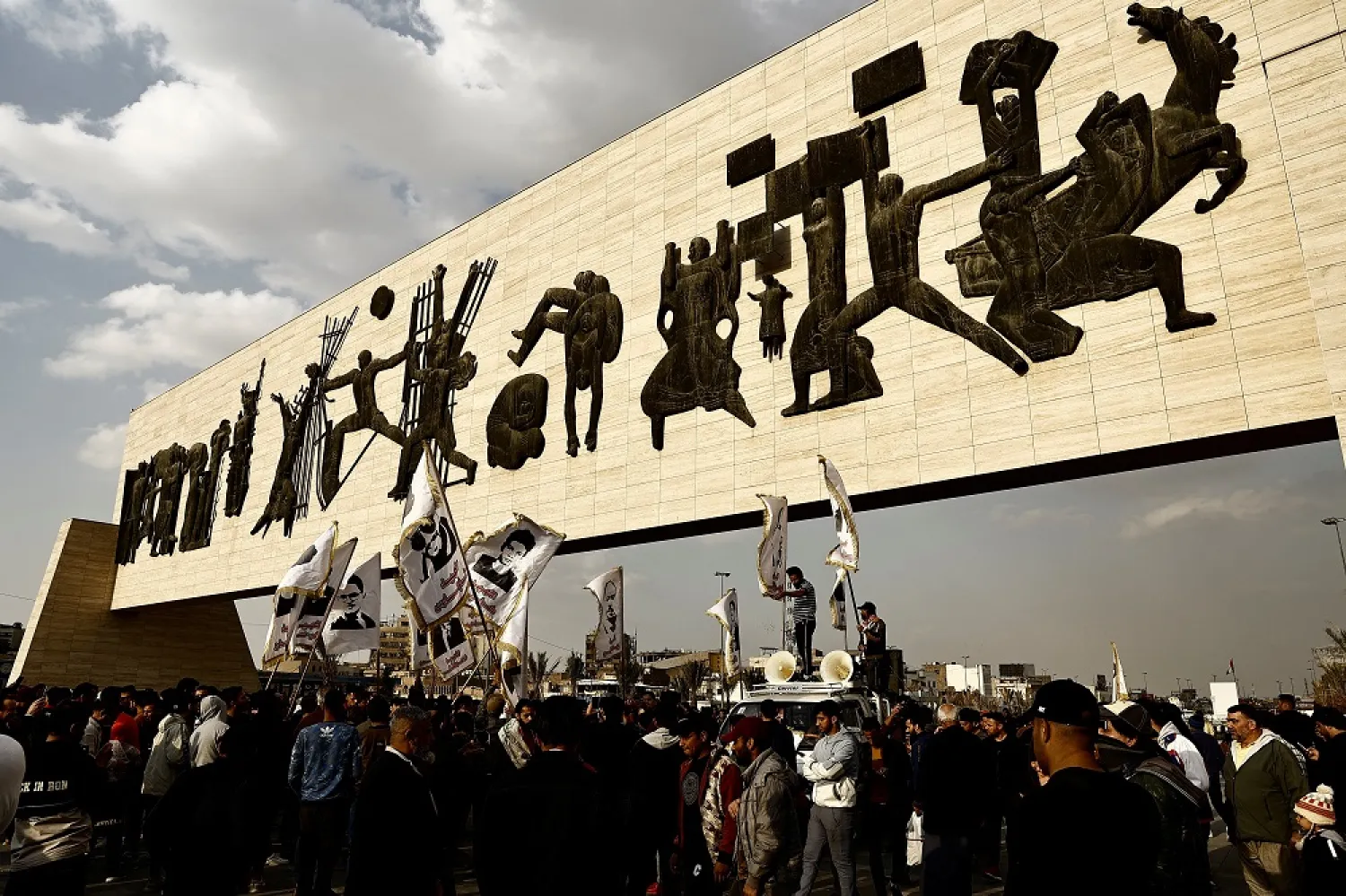Iraqi protesters rallied Friday in Baghdad, demanding the government take action to stop the economic crisis and the slide of the national currency after the Iraqi dinar plunged further.
Measures taken by the United States in recent months to stamp out money laundering and the channeling of dollars to Iran and Syria from Iraq have severely restricted Iraq's access to hard currency.
The Iraqi dinar slipped to around 1,750 to the dollar at street exchanges in some parts of the country on Thursday, compared to the official rate of 1,460 dinars for $1. On Friday, most exchange stores in Baghdad were closed, while in the northern city of Irbil, the dollar was trading at around 1,710 Iraqi dinars.
A small crowd of about 150 gathered in central Baghdad on Friday, chanting against Prime Mohammed Shia al-Sudani and carrying slogans. "The rise of the dollar means death to the poor and children," said one banner.
Another read: "Today we will see which of the MPs are with the demands of the people and which are against them." Some protesters raised pictures of demonstrators who were killed during mass anti-government protests that began in late 2019.
Since the US invasion of Iraq in 2003, Iraq’s foreign currency reserves have been housed at the United States’ Federal Reserve, giving the Americans significant control over Iraq’s supply of dollars.
The Central Bank of Iraq requests dollars from the Fed and then sells them to commercial banks and exchange houses at the official exchange rate through a mechanism known as the "dollar auction."
Ostensibly, the vast majority of the dollars sold in the auction go to purchases of goods imported by Iraqi companies. However, political and banking sector officials have said that in many cases, invoices were faked or inflated to transfer large sums of money out of the country, including to Iran and Syria, both of which are under US sanctions.
Late last year, at the request of the US, the Central Bank of Iraq blacklisted four banks suspected of money laundering and started using an electronic system for transfers that required entering detailed information on the intended end-recipient of the requested dollars.
Since then, most requests for transfers of funds from Iraq's accounts in the US have been rejected, reducing the supply of dollars in the market and leading to a devaluation of the dinar and price inflation.
Sudani spoke to President Joe Biden by telephone on Thursday evening, and an Iraqi delegation is set to travel to Washington next Friday to discuss financial issues.
Sudani's office said in a statement that the prime minister had "issued strict directives to deal with currency smuggling, arrest smugglers and speculators at the dollar exchange rate, confiscate smuggled funds, and subject external checkpoints to monitoring and scrutiny."
The Iraqi National Intelligence Service said Friday that it had seized more than 1 million dollars from organized crime groups intending to smuggle the funds. The statement, which was carried by the Iraqi state news agency, did not specify the planned destination of the funds.









